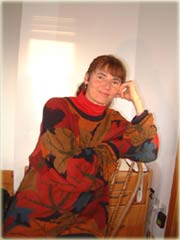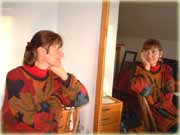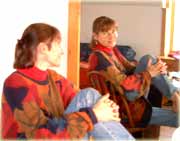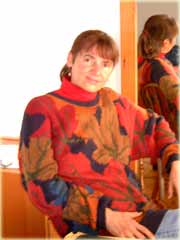
Welcome into my World
Making Dreams Come True
NEW BLOGS
Sept 4, 2009
July 29, 2009
May 15, 2009
December 17, 2008
February 5, 2008
February 4, 2008
January 10, 2008
December 7, 2007
December 6, 2007
October 7, 2007
September 30, 2007
September 9, 2007
Sept 8, 2007 - more
September 8 , 2007
June 25, 2007
June 23, 2007 - more
June 23, 2007
June 22, 2007
June 18, 2007
May 28 , 2007
May 20, 2007
April 8, 2007
March 18, 2007
March 10, 2007
January 4, 2007
December 28, 2006
December 14, 2006
December 7, 2006
Oct 26, 2006 - more
October 26, 2006
October 10, 2006
October 09, 2006
September 20, 2006
September 19, 2006
September 18, 2006
Sept 3, 2006
- even more
Sept 3, 2006 -
more
September 3, 2006
August 13, 2006
August 5, 2006
July 31, 2006
July 24, 2006
July 23, 2006
July 9 2006
July 8, 2006
June 21, 2006
June 15, 2006 -
more
June 15, 2006
June 11, 2006
June 6, 2006 - more
June 6, 2006
May 24, 2006
August 17, 2005
August 8, 2005
STAY IN TOUCH

It's so easy
to lose touch.
Click here
to stay in touch
with FREE updates
So here I am,
looking out, wondering.

How to do this?
A big question - how to do this?
I know it can be done, but
I can do this,
but it takes a lot of doing.
It's easiest in the morning. 
Everything seems possible then.
What do you see when
you see me, I wonder.
I keep trying. I'm not sure
what will happen. But over
and over again, I keep
trying - because something
in me doesn't give up, not
forever anyway.

Click here to
STAY IN TOUCH
with FREE updates.





Taboos. Who may
see what? What's okay to share with students?
Ideas, yes. What about
childhood experiences? Creative writing?
An exploration:
me the teacher, me the writer, boundaries..
OCTOBER 26,
2006
TABOOS - WHO MAY SEE WHAT?
SOME THOUGHTS FROM ME-THE-TEACHER
I teach. There's nothing I am writing that is sexually explicit. There's nothing that incites to violence, terrorism, prejudice. There's no nudity. No terrible secrets are revealed. And yet I go, what is appropriate for students? Is this too personal?
I don't mean, should this stay off the web and unpublished.
But I have students look at the occasional piece. I have wondered, is this safe to show, when I wrote about the rage of the self-proclaimed righteous, talking about the many Muslims outraged at a cartoon while not outraged at Muslim violence. But in that case a colleague worried for my safety, and my partner too would have preferred if I wrote the same things under another name.
The taboos I am thinking of here are different.
Last night there was a news clip on a high school teacher who, in the 1970's, sweet-talked (and wined and dined) about two dozen of his students into having sex with him. He was sorry, knew he had crossed a line. But it was only a decade later that laws were passed prohibiting teachers to have sexual relations with underage students, so according to him, he had done nothing illegal. (He did not mention the two cases, according to the charges, where former students alleged the sex was not consensual.)
His line is one I would not want ever to get near - not because he ever had sex with a student. I know some teachers and students truly fall for each other - with Abelard and Heloise being a famous duo from history. But this teacher set up situations in order to manipulate students into having sex with him, situations in which they found it hard to say no, even when inside themselves they were often saying no. Plus not only was he a manipulative user (telling the students - every one of them, one after the other - that they were special, pushing them to get drunk, and so on), but he was their teacher, in a power position, and using that leverage as well.
That teacher crossed lots of lines - lines to do with caring, consideration, respect, fairness, justice (even if at the time he rarely cossed a legal line).
Back to my own taboos. They're far from his.
Some of my general taboos have to do with revealing anything that might smack of weakness. That has been a lifelong thing. Somehow very early I learned that, in fundamental ways, it was okay for others to be weak, outsiders, shy, and so on, but I had to be strong, be able to withstand, not care. It was not fair to others to reveal otherwise or be otherwise - plus I had better watch out, or they would use the information against me, mainly to make fun of me, which would of course only put me further outside.
"Keep a still upper lip." A British phrase from the nineteenth century - but pretty applicable to me.
I'm not the person I was as a child. Yet some of the old taboos still linger.
At the very least, I hesitate: how far is it okay to invite students in?
I do talk of many experiences in my classes - those experiences (briefly told) fit with the course material, and I've had students say that some of those stories are what they most remember from the classes. But the stories are generally from the "fine for everyone to know" part of me (a part which has expanded over the years).
Years ago, I was struck by an article by a teacher, in which she described how her teaching became much more effective once she included her own experiences.
Another teacher has just come to mind - very different. She would not even let students know her religion, or any of her opinions, so as not to influence them.
I have no trouble letting students know my beliefs and opinions. In fact, my belief is that I'm there to help them think as well as possible, and part of it is through showing how I back my opinions. In other words, if you can come up with better arguments, great, that way I can learn.
Experiences are different, for me.
The question is: which experiences have a place in the classroom?
So I am somewhere near where I started - unsure of what I think fits for students to read about me (and so know about me) within the context of a class. (Published stuff, not mentioned in a class, is something else - it's available to the whole world).
But I'm also not quite where I was at the start of this piece - because I have written about my thoughts, my wondering, my hesitations, and am sending my thoughts out to you - to you if you're a teacher, and to everyone who reads this, because we've all been students.
What are your thoughts and experiences re this?
As always, welcome into my world.
signed,
Elsa
OCTOBER 10 , 2006
copyright © Elsa Schieder 2006, 2011
publishing house - FlufferDuff Impressions 2006, 2011
![]()
words stirring the riches within
Here's more on ... why subscribe?
inner magic released
from stuck in a bottle
to developing your potential
creative development, living fully
Or you can just
PRIVACY POLICY
I will never let anyone else have
your email address.
Elsa
_____________________
______________________

![]() STAY IN TOUCH
STAY IN TOUCH![]()

with FREE updates
- Elsa's creativity blog -
Taboos. Who may see what? What's
okay to share with students? Ideas, yes. What about childhood experiences?
Creative writing? Elsas Creativity Blog explores:
me the teacher, me
the writer, boundaries..
To go from Elsas
creativity blog to Caro's Quest, click here.
To go to a taste of White
Chocolate and Hot Fudge Sauce, click here.
To go from Elsas creativity blog to the home page, click here.
To go to the overview, click here.
For a complete
listing of Elsa's creativity blogs, click here.
Elsa's Creativity
Blog
Writer blogs, poetry blogs, musical blogs.
How do I get my works out into the world?
Steps, stages, successes, failures.
Creativity. Not easy to find a home for it.
****
For those of you wondering, just what is Elsa's creativity blog about?
elsas creativity blog
is not the same as elsas creativity log - a jotting down of events, of
time spent
elsas creativity blog
is not a hop and stop
tip top mop shop pop drop
elsas creativity blog
is elsas creativity blog
is elsas creativity blog
but what is elsas creativity blog?
elsas creativity blog
is stop and start
on and off
trying
doing
ever renewing
elsas
creativity blog
elsas
creativity blog
is not a dog
log
fog
smog
groggy old nodding off creativity blob
is a wide awake
revving up
ever making up
stuff
elsas creativity
blog
elsas creativity blog -
a short stop to bring you along
as
I'm making up the site
feeling
my way
like
a jungle explorer
creepers
and crawlers every which way
how
to get through the day?
I
couldn't say
that's elsas creativity blog
where does it come from?
where des it go?
elsas creativity blog doesn't know
it records the words elsa writes
it stays the course
it blogs all night
it's delighted to be blogging
leap frogging
over
words
over
muddles
over
huddles
of
word lugging trouble
over
word puddles
and into word puddles
elsas creativity blog
elsas creativity
blog
elsas
creativity blog
is
a blog by elsa
on creative endeavors
is
elsa's trying
once
more vying
to reach the world
let words unfurl
let them rumble
let them blog into the sunset
over the hill
down the dale
up the mountain
down the vale
elsas
creativity blog
is
a faithful old horse
that won't stop
it
blop blop blogs
a faithful old horse
stopping now and then in its course
to chew its cud
letting ideas bud
and then blogging alone
blogging along
clip clop blip blop
elsas creativity blog
elsas creativity blog
elsas creativity blog
Elsa Schieder
July 9, 2006
©
Elsa Schieder, 2006
______________
***SOCIALIZEIT***
and even more choices ...
Elsa's Adventures in Internet Land
______________________________________________________________
home about site map privacy policy terms of use contact
______________________________________________________________
site design, site construction - Elsa Schieder
copyright © Elsa Schieder, 2006-2017 - all rights reserved
copyright © elsas-word-story-image-idea-music-emporium.com, 2006-2017 -
all rights
reserved
CLICK HERE TO CONTACT
Elsa